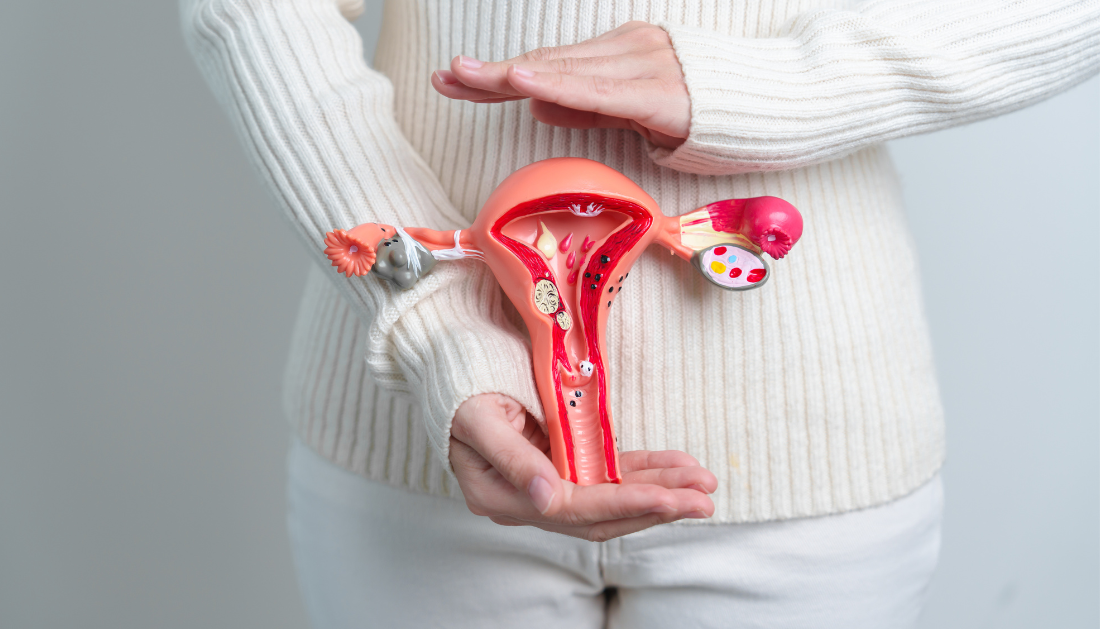

For ovarian and endometrial cancers, early detection enhances treatment results; however, far too many women receive their diagnosis when the illness has progressed. There is no routine testing for the early diagnosis of endometrial and ovarian malignancies, in contrast to many other cancers. It is anticipated that environmental factors, obesity, and diabetes will promote an increase in the incidence rate of endometrial cancer.
Early detection of these tumors is the goal of Marina Walther-Antonio, Ph.D., and associates at the Mayo Clinic’s Center for Individualized Medicine.
Their study delves deeply into the microbiome, a community of billions of microorganisms that affect health and disease. These microorganisms include bacteria, fungi, and viruses. Through their research, they have identified distinct microbial signatures associated with ovarian and endometrial malignancies, and they are currently developing novel home swab tests to determine a woman’s vulnerability.
Dr. Walther-Antonio, a researcher at the Mayo Clinic Comprehensive Cancer Center and the Departments of Surgery and Obstetrics and Gynecology, asserts that “screening the microbiome for early detection may improve patient outcomes.”
A group of 17 bacterial microorganisms, including Porphyromonas somerae, dubbed the “lightning rod” of the group, were found to be linked to endometrial cancer.
They compared Porphyromonas somerae to its closest relative, which is known to be connected to oral cancer, to substantiate this connection. The group postulated that Porphyromonas somerae might contribute to endometrial cancer in a similarly aggressive manner. Following a thorough testing procedure, it was shown that this microorganism may infiltrate endometrial cells and modify their functionality, particularly when exposed to estrogen – a known risk factor for endometrial cancer.
The team’s investigation into ovarian cancer revealed a microbial dispersion in the reproductive tracts of affected women. Additionally, they disclosed alterations in the compositions of microbiomes that are associated with the results of patient therapy. These results might lead to further research into how well these markers work for identifying and forecasting treatment outcomes.
With 417,367 new cases and 97,370 fatalities recorded in 2020, endometrial cancer is the sixth most frequent cancer among women worldwide, according to World Cancer Research Fund International. The eighth most frequent type of cancer is ovarian cancer, with 313,959 new cases and 207,252 deaths reported in the same year.
The Waitematā District Health Board authorities and the Mayo scientists are working together to address the needs of the Māori and Pacific Islander communities in New Zealand, which has one of the highest rates of endometrial cancer worldwide. Although there is yet no clear explanation for the increased incidence rates among younger women, factors including the high rates of obesity, a known risk factor, are probably involved.
A long-term program in the United States aims to involve Black women, with a focus on postmenopausal women.
Black women don’t have a higher incidence rate of endometrial cancer, but they have a higher mortality rate and morbidity rates. This is influenced by several factors, including limited access to healthcare. Symptoms frequently go unrecognized or are mistakenly attributed to other conditions, such as fibroids, which are common among Black women” – Dr. Walther-Antonio, Mayo Clinic Comprehensive Cancer Center
To detect potential risk factors, Mayo’s experts plan to ask participants to submit samples every six months for three years. These samples will include vaginal swabs and environmental samples.
In the end, Dr. Walther-Antonio and her colleagues want to utilize these microbiome indicators to anticipate cancer and take action against it before it manifests.
more recommended stories
 CTNNB1 Syndrome Study Explores Beta-Catenin Defects
CTNNB1 Syndrome Study Explores Beta-Catenin DefectsKey Takeaways Researchers in Spain are.
 Tuberculosis Breakthrough with Experimental Antibiotics
Tuberculosis Breakthrough with Experimental AntibioticsKey Takeaways Experimental antibiotics disrupt a.
 National Healthy Longevity Trial Receives Federal Support
National Healthy Longevity Trial Receives Federal SupportKey Summary Up to $38 million.
 Red Blood Cells Improve Glucose Tolerance Under Hypoxia
Red Blood Cells Improve Glucose Tolerance Under HypoxiaKey Takeaways for Clinicians Chronic hypoxia.
 Nanoplastics in Brain Tissue and Neurological Risk
Nanoplastics in Brain Tissue and Neurological RiskKey Takeaways for HCPs Nanoplastics are.
 AI Predicts Chronic GVHD Risk After Stem Cell Transplant
AI Predicts Chronic GVHD Risk After Stem Cell TransplantKey Takeaways A new AI-driven tool,.
 Red Meat Consumption Linked to Higher Diabetes Odds
Red Meat Consumption Linked to Higher Diabetes OddsKey Takeaways Higher intake of total,.
 Pediatric Crohn’s Disease Microbial Signature Identified
Pediatric Crohn’s Disease Microbial Signature IdentifiedKey Points at a Glance NYU.
 Nanovaccine Design Boosts Immune Attack on HPV Tumors
Nanovaccine Design Boosts Immune Attack on HPV TumorsKey Highlights Reconfiguring peptide orientation significantly.
 High-Fat Diets Cause Damage to Metabolic Health
High-Fat Diets Cause Damage to Metabolic HealthKey Points Takeaways High-fat and ketogenic.

Leave a Comment